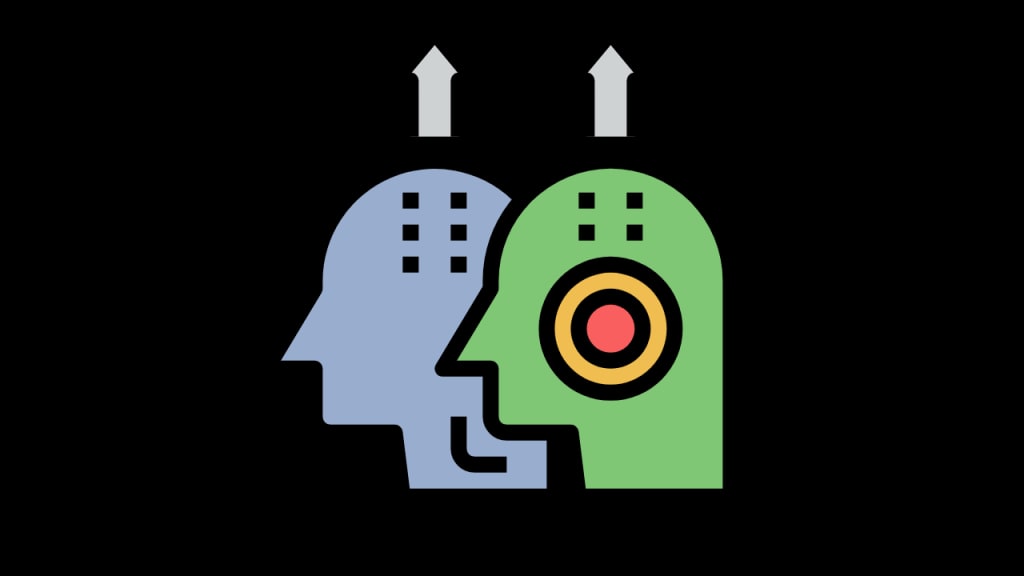How To Easily Fix 15 Destructive Habits That Are DESTROYING Your Motivation
Do you feel like your motivation is at an all-time low? Learn how to increase your productivity and eliminate distractions.

It's surprisingly easy to fall into destructive habits - but it's also surprisingly easy to break them. After reading this post, you'll be able to identify what your bad habit is, understand the consequences of that habit, and create an action plan for how you're going to stop!
Learning how to break a bad habit isn't about having willpower. It's about understanding how your brain works and learning what triggers the behavior. When you know why you do what you do, it becomes much easier to craft a plan that meets that need without reverting back into old patterns.
1. What's the impact of this bad habit?
This is a good place to start. A lot of habits are addictive, but not all of them are. It doesn't matter if it's an eating disorder, self-harm, addiction or something less serious like checking your phone every 30 seconds. They can all be destructive depending on the context and how severe the consequences are if they're broken. For example, if you have an eating disorder and they affect your health negatively then they would be considered destructive and you'd want to take action against them as soon as possible.
2. How do you feel before and after doing it?
There's a reason why this is one of the first questions a therapist asks. It's because they understand that your mood is a good indicator of your motivation or lack thereof. If you've been finding yourself feeling unmotivated, then chances are there are destructive habits that could be contributing to it. Find those habits and eliminate them and then watch your motivation come back full force!
3. What is driving your behavior? Are there deeper reasons why you do it?
Sometimes we just do things because they're fun—but sometimes we do things because we want to feel better about ourselves, or want to forget about our problems for a moment. Once you realize why you're doing it, you can figure out what the root problem is and find a way to successfully address it.
4. Do you have a negative internal dialogue?
All of us have an inner voice that tells us things. Most of the time, it tells us nice things—but sometimes it's not so good. If your internal dialogue is constantly berating yourself or shaming you then chances are that your bad habit(s) are contributing to those thoughts. If this is the case, then change your behavior and your internal dialogue will follow!
5. How do you feel right after you've done it?
This is key. If you haven't been able to answer "What's the impact of this bad habit?" then skip ahead to #3. If the problem is that your moods are negatively affected, then answer "What's driving your behavior?" Once you've answered that question and listed out potential solutions, go back and read #4. This is where you'll find some solutions that can help. If your bad habit(s) aren't affecting your mood at all, then stay calm and keep reading!
6. Are there any triggers that put you into a negative frame of mind?
Sometimes the most stubborn habits can be identified by understanding what triggers them. If you're reading this post, then chances are you've already identified triggers for destructive habits like checking your phone every ten seconds. Find out what it is that gives you a bad mood and then either avoid it or minimize it by making adjustments to your daily routine. If nothing helps, try other methods of therapy to help find those triggers and resolve that underlying problem!
7. What negative consequences do your bad habits have?
If you answer "What's driving behavior?" at #4, then now we'll focus on the negative side of things. If you don't check your phone every ten seconds, but instead do it for an hour and a half, then there will be some negative consequences. You're going to feel unmotivated and it probably won't be a productive hour and a half either. The same with eating disorders or other destructive habits—if they are negative they will have some sort of consequence. The longer you do them, the bigger the consequences: illness, anxiety, stress etc.
8. What other damaging habits do you have?
Good question! If you answer "What is driving need?" at #3 then this is where we focus on what your bad habit(s) are actually doing to build up the problem. For example, if you feel unmotivated after checking your phone, then there's the underlying issue of being unhappy with yourself. If you eat because you're bored and it makes you unhappy or ashamed then it's damaging. The same with drinking or even self-harming—all habits have consequences that accumulate over time.
9. How long have you been doing this bad habit for?
We repeat ourselves because this is important. Some habits are a direct result of how long they've been happening! For example, if someone has had an eating disorder for a few months (or maybe years) then they're going to be more likely to develop an addiction to it than someone who just had one for two weeks (or months).
10. What impact does this bad habit have on the people around you?
This is the biggest question of them all. If it's bad enough, then the answer is going to be "a lot" or "huge damage." However, if it's not affecting anyone else then you need to get a hold of yourself—because there are people who care about you and do want to see you succeed! No matter what your bad habit is, it affects someone. Remember that for next time...
11. What happens because of your bad habit?
This is a broad question so let's make an example. If you check your phone every ten seconds, then you aren't going to be doing much else in life. You won't be working on projects, reading books or exploring the world around you—instead you'll just be spending every waking moment staring at that tiny screen and wondering what your friends are up to. Is it worth it? No way!
12. What do you get out of doing this bad habit?
This is another important question because if the bad habits weren't getting anything from them then they would have ditched them by now. For example, if someone was consistently eating on a regular basis and didn't gain any weight or improve in any way then they would stop doing it. It's irrational to continue something that you know is not worth it.
13. What do others think of your bad habit?
If there are people in your life who genuinely care about you and want to see you succeed then they should be used as the best possible resource for recovery! If there aren't, then what do they think? They love you and want you to be happy—so don't forget that! No one will hold it against you if they know what's best for you.
14. What does your family think?
Your family is going to love you for doing this question, but it's also so important that you find out what they think. There's no point in pushing through your bad habit when the people closest to you are angriest about it! Your loved ones are probably going to tell you just how important it is that you stop doing the bad habit—and they will be right! Keep in mind, though, that they will still love you even if they can't understand why you do something so destructive, so don't get all annoyed at them.
15. What does your partner think?
Your partner is going to be super thankful you asked this question. They're going to be quite happy about the progress you've made and honestly so will your parents! You'll have a better idea of what your significant other thinks about the bad habit by simply asking them (if there's a chance they might say "you know what I don't care" then skip that question).
In Conclusion
Hopefully these 15 questions have helped you get a better idea of what's going on in those destructive minds of yours! It might take a while to do all of them, but that's okay—just remember why it's important! These questions are effective because they are simple and impactful. The more you practice using them, the better you will be at identifying your bad habits and understanding just why they're so destructive.
We recommend that you write down the answers to these questions so you can fully figure out where the problem is coming from. At first that might seem daunting, but trust us when we say that writing down your answers will help a lot (it's not cheating because this is for yourself).
About the Creator
BingBingMoney
Welcome to our blog... This is where we will find news, information, tips, tricks and advice on how to make your life better. We hope you enjoy our blog as much as we do.






Comments
There are no comments for this story
Be the first to respond and start the conversation.